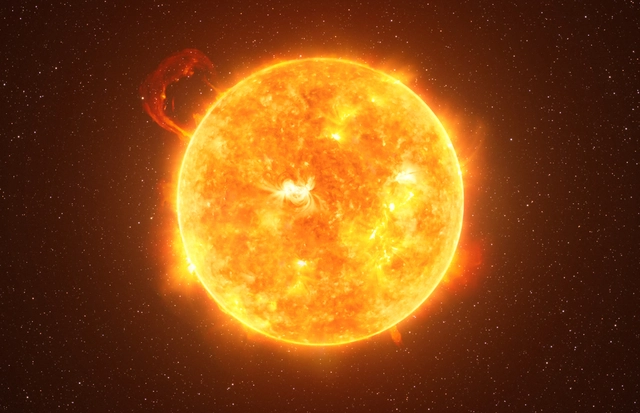The world of science and technology is full of wonders. As humanity advances on the path of discovery, new concepts and theories revolutionize our understanding of the universe. One such theory is zero-point energy. But what exactly is zero-point energy, and how might it change our lives?
Zero-point energy is a concept that has intrigued scientists and technologists alike. It is a physical phenomenon associated with quantum fluctuations in vacuum. Some theorists even suggest it could hold the key to a scientific and technological revolution. Could this invisible energy be the answer to some of the world's most pressing problems?
In this text, we delve into the intriguing world of zero-point energy. We'll explore its roots in quantum physics, its potential applications in technology, and its potential to transform our future. We'll also analyze current theories and experiments seeking to harness this powerful resource.
Our goal is to unravel the mysteries of zero-point energy and provide a clear understanding of its significance. With a balanced and objective approach, we will examine both the promising aspects and the challenges posed by this fascinating theory.
So, if you're passionate about science and technology and looking to learn about the latest trends and discoveries, we invite you to join us on this journey of exploration. Immerse yourself in zero-point energy, a world where reality can be even stranger than fiction. Come on, the future awaits! 🚀🔬
Understanding Zero-Point Energy
In the vast universe of quantum physics, zero-point energy is a fascinating and enigmatic phenomenon. Simply put, zero-point energy is the minimum energy a quantum system can possess. Contrary to what we might assume, this state of "rest" does not equate to an absence of energy. Instead, even at its lowest point, a fluctuation in energy is perceptible due to the laws of quantum mechanics.
Quantum mechanics and zero-point energy
Quantum mechanics is a branch of physics that deals with phenomena on a very small scale, such as atoms and subatomic particles. According to the principles of quantum mechanics, particles can exist in multiple states at once, a phenomenon known as quantum superposition. Furthermore, particles can be entangled, so that the state of one can instantaneously affect the state of another, regardless of the distance between them.
Extracting energy from the vacuum
According to zero-point energy theory, the space we usually think of as a vacuum actually bubbles with particles and energy. The challenge is how to extract and harness this energy. In theory, a device capable of doing so could provide a virtually inexhaustible source of energy, with profound impacts on technology and society.
Potential technological applications
The potential applications of zero-point energy are revolutionary. They range from powering our homes and vehicles to propelling spacecraft and conducting atomic-level research. However, despite the tremendous potential, the exploitation of zero-point energy is still in its early stages. This is largely due to the technical difficulty of measuring and manipulating phenomena at the quantum scale.
Challenges and ethical considerations
Despite its promise, zero-point energy also poses significant challenges. For one thing, the technology needed to extract it is extremely advanced and has yet to be fully developed. Furthermore, there are ethical issues to consider. If we do master this form of energy, who will control it? How do we ensure it is used responsibly?
In summary
Zero-point energy represents an exciting frontier in physics and technology. Although its practical exploitation may be years or even decades away, the promise of a virtually unlimited, non-polluting energy source is too great to ignore. As with all emerging technologies, however, it will be essential to address the technical and ethical challenges that lie ahead.
Conclusion
In conclusion, zero-point energy is a fascinating and promising field of quantum physics that can have a revolutionary impact on science and technology. Despite its complexity and the challenges it presents, the potential of this form of energy is immense and too important to ignore. The possibility of extracting energy from what we generally think of as a vacuum can open doors to a virtually inexhaustible source of energy, which could transform the way we power our homes, vehicles, and even spacecraft. However, the path to achieving this potential is fraught with technical and ethical obstacles that require serious consideration. The technology required to extract this energy has not yet been fully developed, and the question of who will control this form of energy and how it will be used responsibly remains unanswered. Ultimately, although mastery of zero-point energy may be years or even decades away, its promise suggests an exciting future for the scientific and technological revolution.



